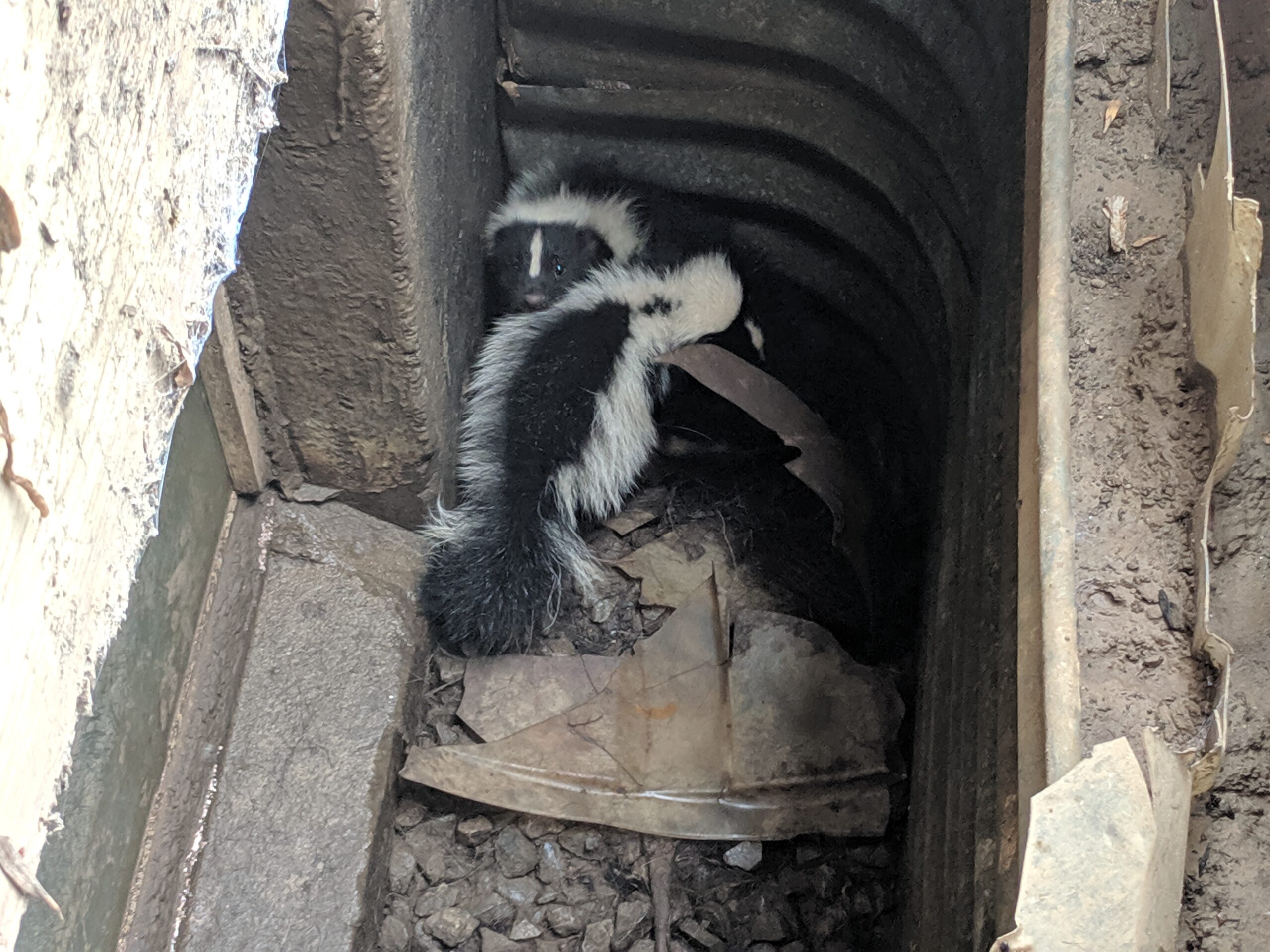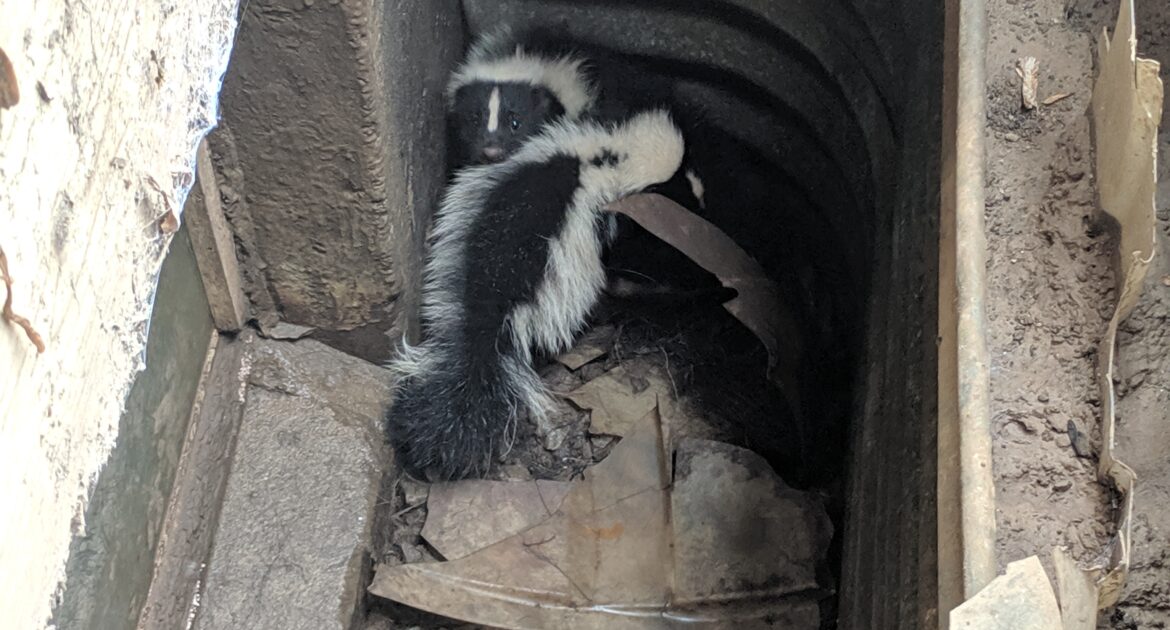Skunks are notorious for their stripes and their stench, but a lot of people don’t know much else about them. For many, their only skunk experiences are smelling and seeing them on the side of the road. There are five species of skunks, four of which are found in North and Central America. The stink badger was recently added to the skunk family. It is the only skunk that doesn’t live in America, and it can be found in Indonesia. If you discover a skunk living on your property, contact experts in humane skunk removal in Niagara for safe, humane and stink-free removal.
A Skunk-Friendly Environment
Skunks are much more abundant than most people think. On average, there are between five and 13 animals per square mile. Skunks are nocturnal and shy, so this typically keeps them out of human sight. They are well-adapted to survive anywhere they have easy access to safe shelter, food and water. Their natural habitat is woodland environments, preferably near a river. They also live in grassland and desert regions. However, they are quite used to living in human environments as well.
Skunks Seek Safety
A skunk’s only form of defence is its spray, and once it depletes that, it can take up to 10 days to replenish its supply. They are typically docile and easy-going creatures unless they feel threatened. They do not spray unless they must. Skunks prefer to play it safe.
They seek out shelters that offer the most protection from potential predators (though they don’t have many) and the elements. Around your house, that could be under your porch, deck or any structure that does not have a foundation. They aren’t great climbers, so they won’t make it into your attic. Skunks have sharp claws made for digging, but they prefer to take over another animal’s abandoned den.
Skunks Aren’t Picky Eaters
Skunks are omnivores and are adapted to eat a wide variety of food. Like raccoons, they aren’t terribly picky. Your garbage bin offers them a buffet of delectable treats, so they may knock it over to get at what’s inside. They’re also big fans of pet food and can rip open a bag in an instant.
Without easy access to human sources of food, skunks prefer to dine on grubs, grasshoppers, beetles, moles and mice, which is great for your garden. They will eat other sources of nutrition when their preferred foods are less abundant. Their hunting and scavenging abilities serve them well in any environment.
Signs of a Stinky Guest
If you have a skunk on your property, you may not know it because they are more active at night than during the day. Pet owners often realize there is a skunk around when their furry family member comes inside smelling like rotten eggs. When a skunk finds a den under a deck or porch, you may detect a musky odour emanating from the den. You can also look for cone-shaped holes in your yard, evidence a skunk has been digging for grubs.
Steps for Making a Skunk-Free Zone
The best thing you can do to prevent skunks from setting up residence on your property is to remove easy access to food and shelter. Make sure your garbage bins are closed with a latch, as skunks don’t have the dexterity of raccoons and can’t manipulate latching devices. You should also keep pet food inside or in a tightly sealed container. Installing motion sensors on your property, particularly around the places they might den, can deter them from denning there.
Your Choice for Humane Skunk Removal in Niagara
If you find out that you have a skunk sharing your property, contact the experts at Skedaddle Humane Wildlife Control. We’ll ensure the skunk is removed safely, and we know how to do it without getting sprayed!




